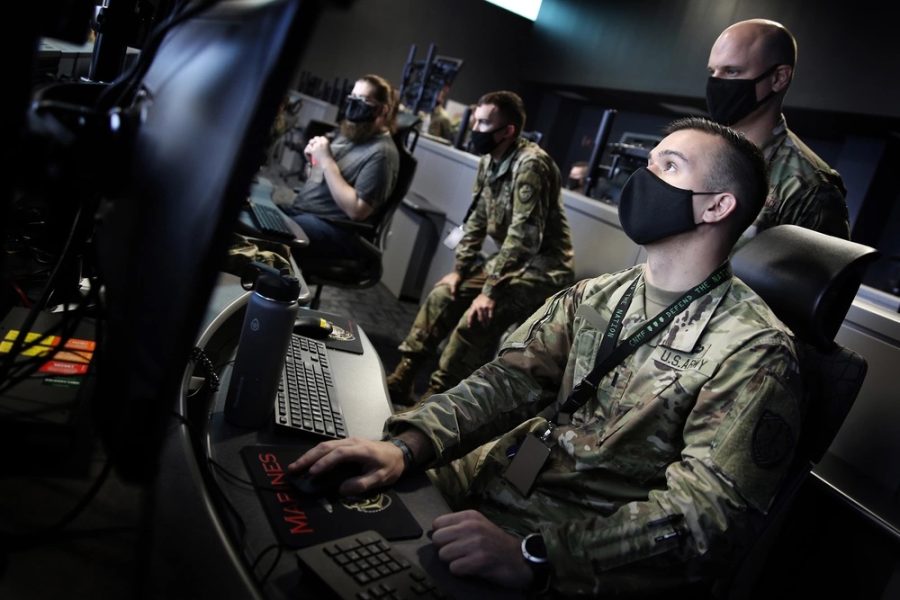As the Senate prepares to start debate on the 2024 National Defense Authorization Act on July 18, one provision in the bill would task the Pentagon with studying the possibility of an independent Cyber Force—taking into account lessons from the Space Force.
The Senate Armed Services Committee completed its markup of the NDAA in late June, and the full text of the bill was released July 11. A section in the legislation directs the Secretary of Defense to work with the National Academy of Public Administration in evaluating whether it is advisable to either establish a separate service dedicated to cyber operations or refine the existing U.S. Cyber Command approach, which is based on the U.S. Special Operations Command model.
The legislation calls for studying how well the armed forces currently meet the cyber requirements of combatant commands, as well as how well the Pentagon recruits, organizes, trains, equips, and retains cyber operators. The study would then evaluate whether an independent cyber force would improve on that performance.
The provision would also analyze the tradeoffs of establishing a completely separate cyber force compared to standing one up within an existing military department, as the Space Force was stood up within the Department of the Air Force in 2019. Lawmakers also want to know “lessons learned from the creation of the United States Space Force that should be applied to the creation of a United States Cyber Force,” the bill states.
In terms of timing, the section requires the Secretary of Defense to enter into an agreement with the National Academy of Public Administration 60 days after the bill is enacted, and the academy would then be bound to submit a report 210 days after the agreement is signed.
If passed, the provision and the ensuing study would help shape debate in Congress over whether to create a separate cyber service, an issue national security experts have debated for years but which has gained particular steam recently. The provision comes after lawmakers expressed a need for more data on the issue.
“I think we have to have like a public sort of analysis of it,” Rep. Mike Gallagher (R-Wisc.) chairman of the House Armed Services Committee’s cyber, innovative technologies and information systems subcommittee, said in February, according to Breaking Defense.
Gallagher said he worried that creating a separate cyber force would lead to “a massive increase in bureaucracy,” especially so soon after the creation of the Space Force, but he admitted that he was “yet to do my own homework on it.”
Some national security experts share Gallagher’s concern over bureaucratic bloat.
“The overhead costs of standing up a new service and its respective bureaucracy would place an undue burden on a military that is still struggling to modernize and likely faces a period of stagnating or declining budgets,” wrote Jason Blessing, a visiting research fellow with the American Enterprise Institute, in a 2021 commentary for War On the Rocks.
Blessing also argued that the current system, in which each service trains cyber operators and contributes to the U.S. Cyber Command, is well-suited to cyberspace, “which has complex intersections and interdependencies with the military’s other operating environments.”
Proponents of an independent cyber force say that the current set-up fails to keep pace with evolving threats.
“Most important, the creation of a U.S. Cyber Force would move America beyond the current ‘pick-up team’ approach to cybersecurity, wherein each of the armed forces has a small number of cyber experts,” wrote retired Adm. James Stavridis, former Supreme Allied Commander Europe, in a March analysis for Bloomberg. The admiral argued that a cyber force would also lead to greater advocacy for cyber needs on the Joint Chiefs of Staff.

